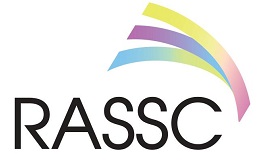2016 The MASCC/ESMO Antiemetic Guidelines have been updated as of March, 2016. The guidelines are based on the Copenhagen Consensus Conference on Antiemetic Therapy, June 2015, and have been endorsed by both MASCC and ESMO. This set of evidence-based guidelines represents several important changes and first-time inclusions. This is the first time that recommendations about management of nausea and vomiting in advanced cancer have been included — as opposed to only nausea and vomiting induced by chemotherapy or radiotherapy — and in this respect, the new MASCC/ESMO guidelines differ from those of NCCN and ASCO. The new guidelines contain recommendations for two new NK1 receptor antagonists, rolapitant and netupitant, the latter given in combination with palonosetron (NEPA), and also discuss the use of olanzapine. The combination of an anthracycline with cyclophosphamide, previously considered of medium emetogenic risk (30-90% risk of vomiting) is now considered a high-risk combination (>90% risk of vomiting). However, this remains a special case, since recommendations for the delayed phase differ from those of other chemotherapies of highly emetogenic risk. In addition, carboplatin is now considered a special case with an indication for triple preventative therapy in the acute phase.


 2020 The Russian Society of Supportive Care in Oncology (RASSC) recently held the Best of MASCC on October 9. The conference, based in Moscow, was held online, and welcomed more than 500 attendees. The international virtual event focused on issues in supportive cancer care including anemia, cardiotoxicity, hepatotoxicity, nutritional support, psychological and psychiatric care, preservation of fertility in young patients, and concomitant therapy in the era of COVID-19.
2020 The Russian Society of Supportive Care in Oncology (RASSC) recently held the Best of MASCC on October 9. The conference, based in Moscow, was held online, and welcomed more than 500 attendees. The international virtual event focused on issues in supportive cancer care including anemia, cardiotoxicity, hepatotoxicity, nutritional support, psychological and psychiatric care, preservation of fertility in young patients, and concomitant therapy in the era of COVID-19. Updated clinical practice guidelines for managing mucositis, a very common and often debilitating complication of cancer therapy, was recently published with open access in the journal
Updated clinical practice guidelines for managing mucositis, a very common and often debilitating complication of cancer therapy, was recently published with open access in the journal  MASCC’s
MASCC’s 